The 'disastrous' tent that has befallen the lives of Gaza's displaced

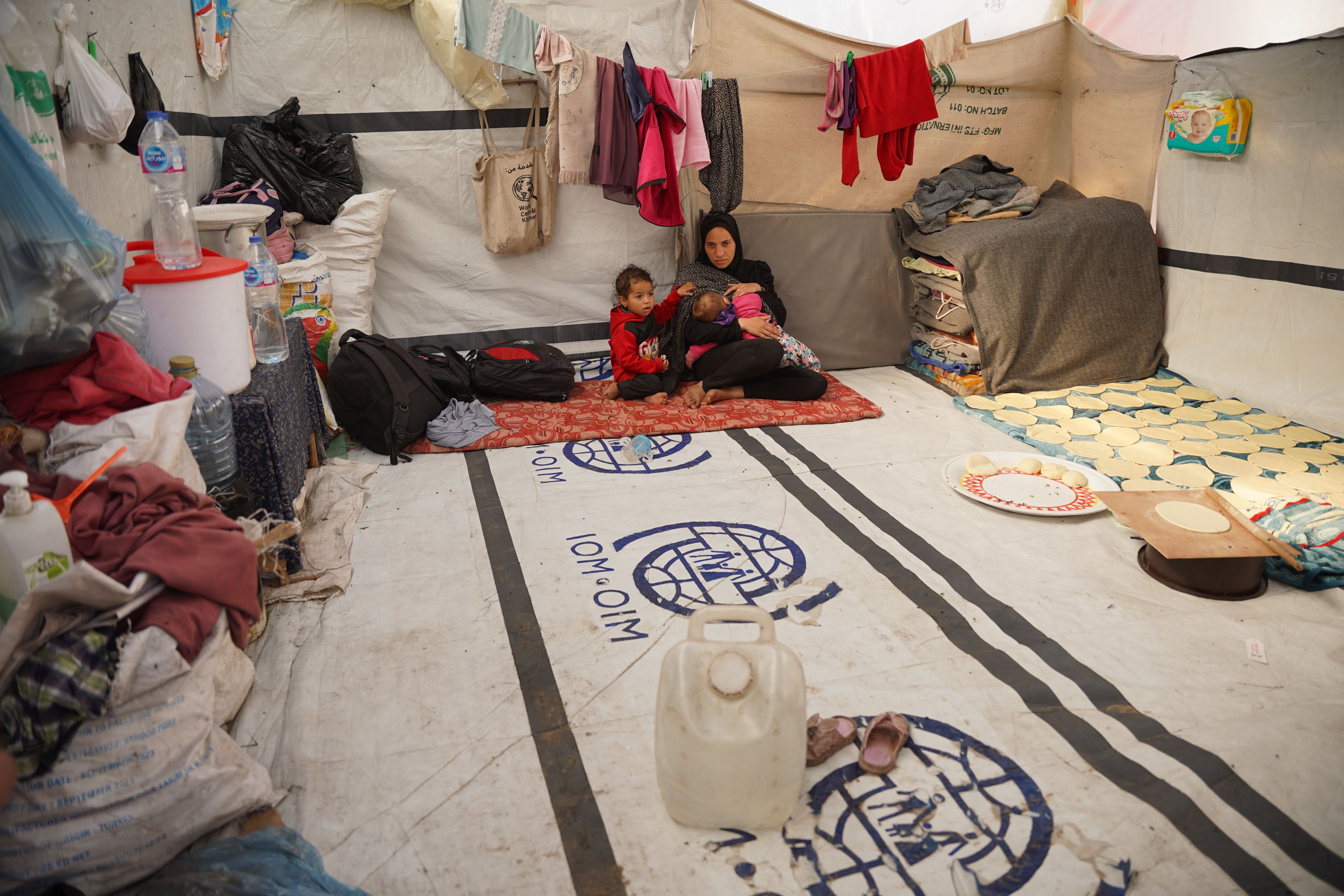
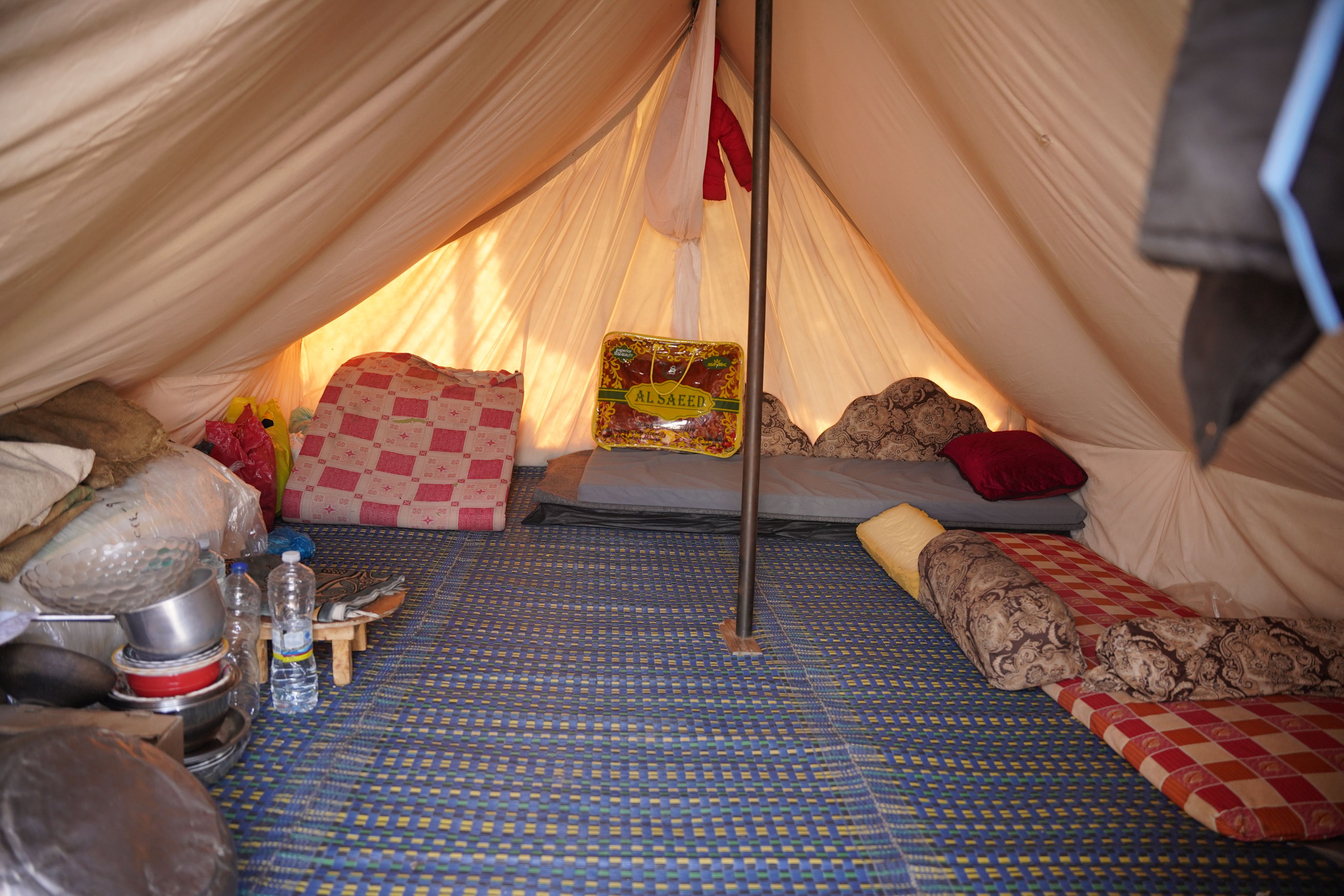
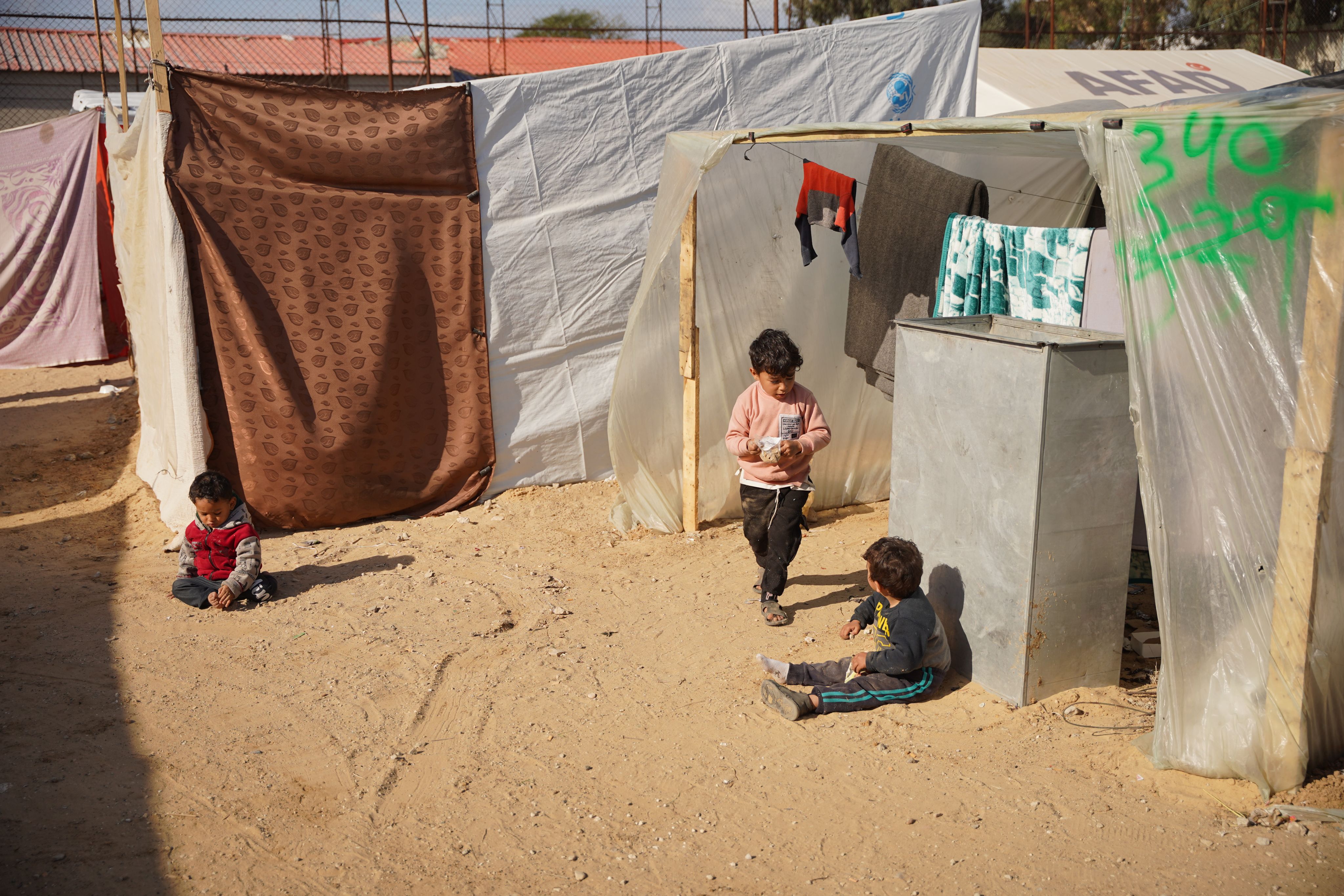
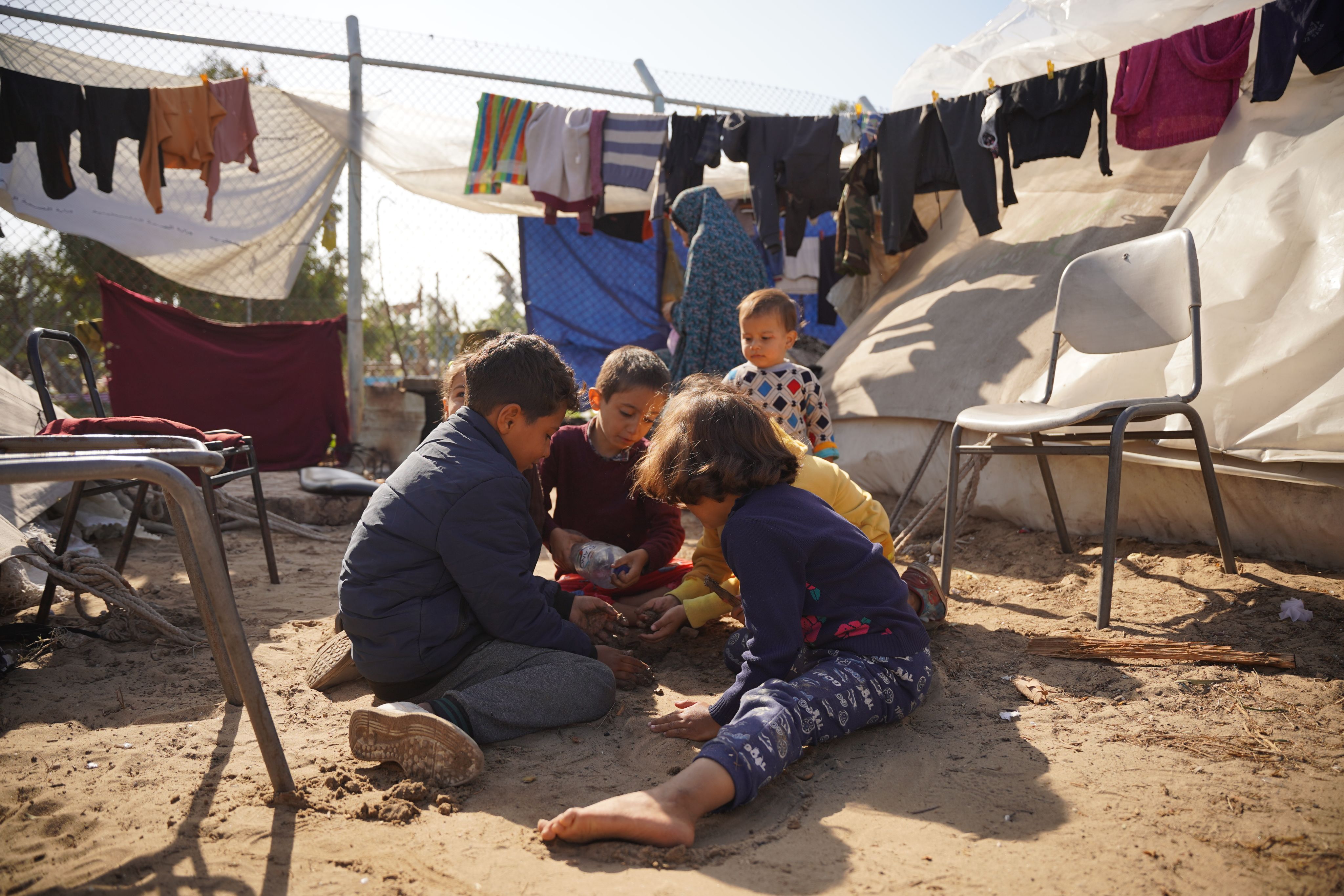
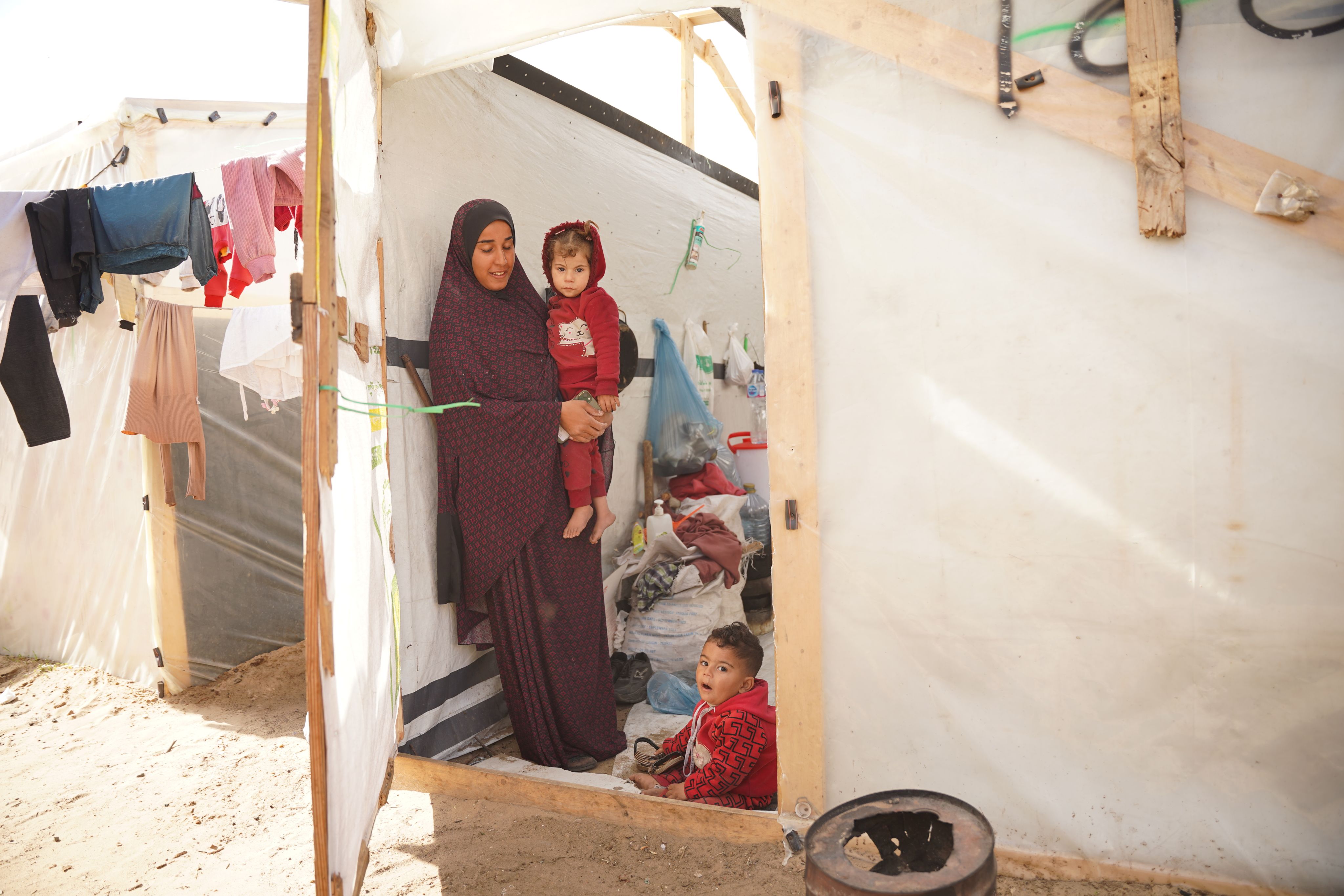
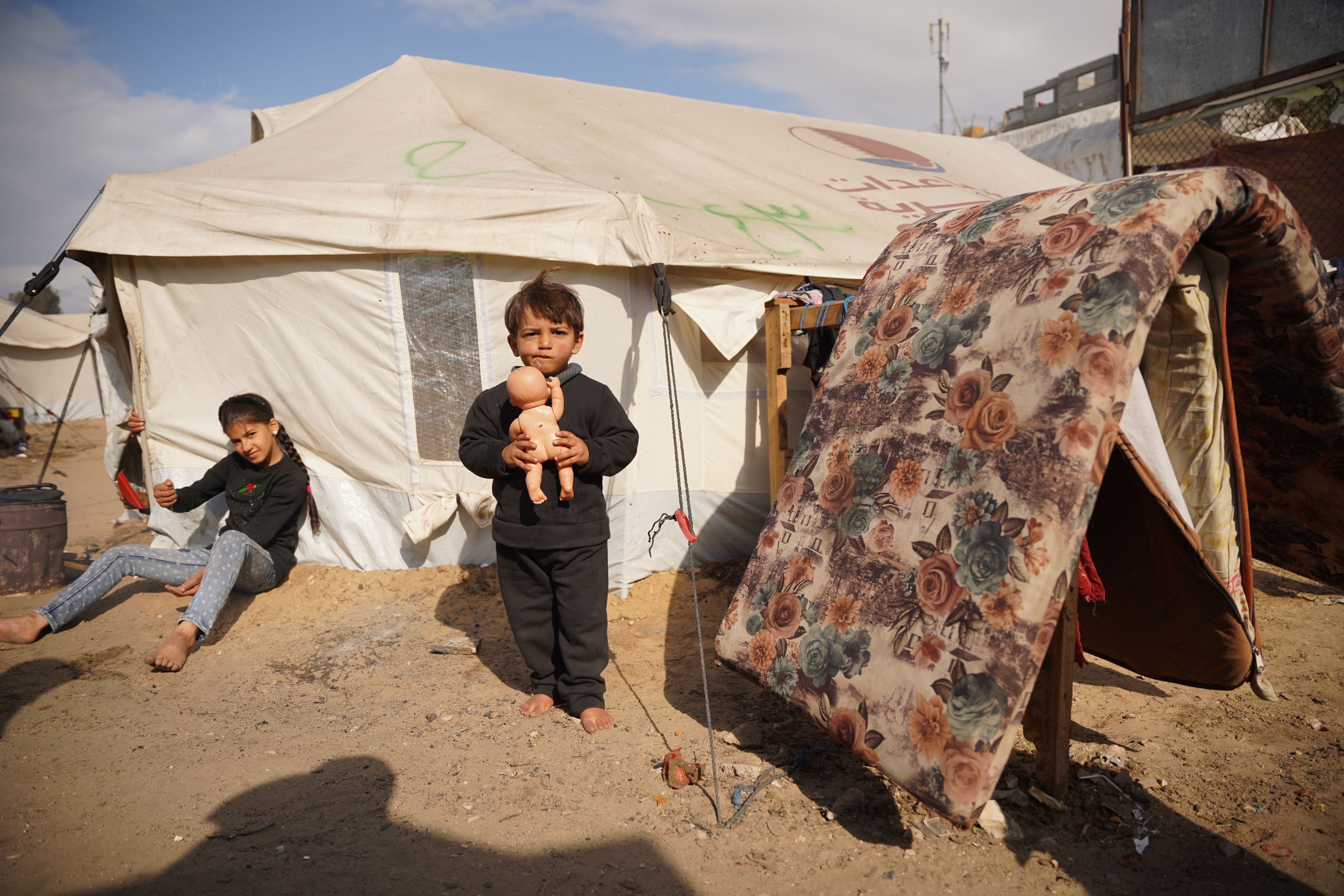
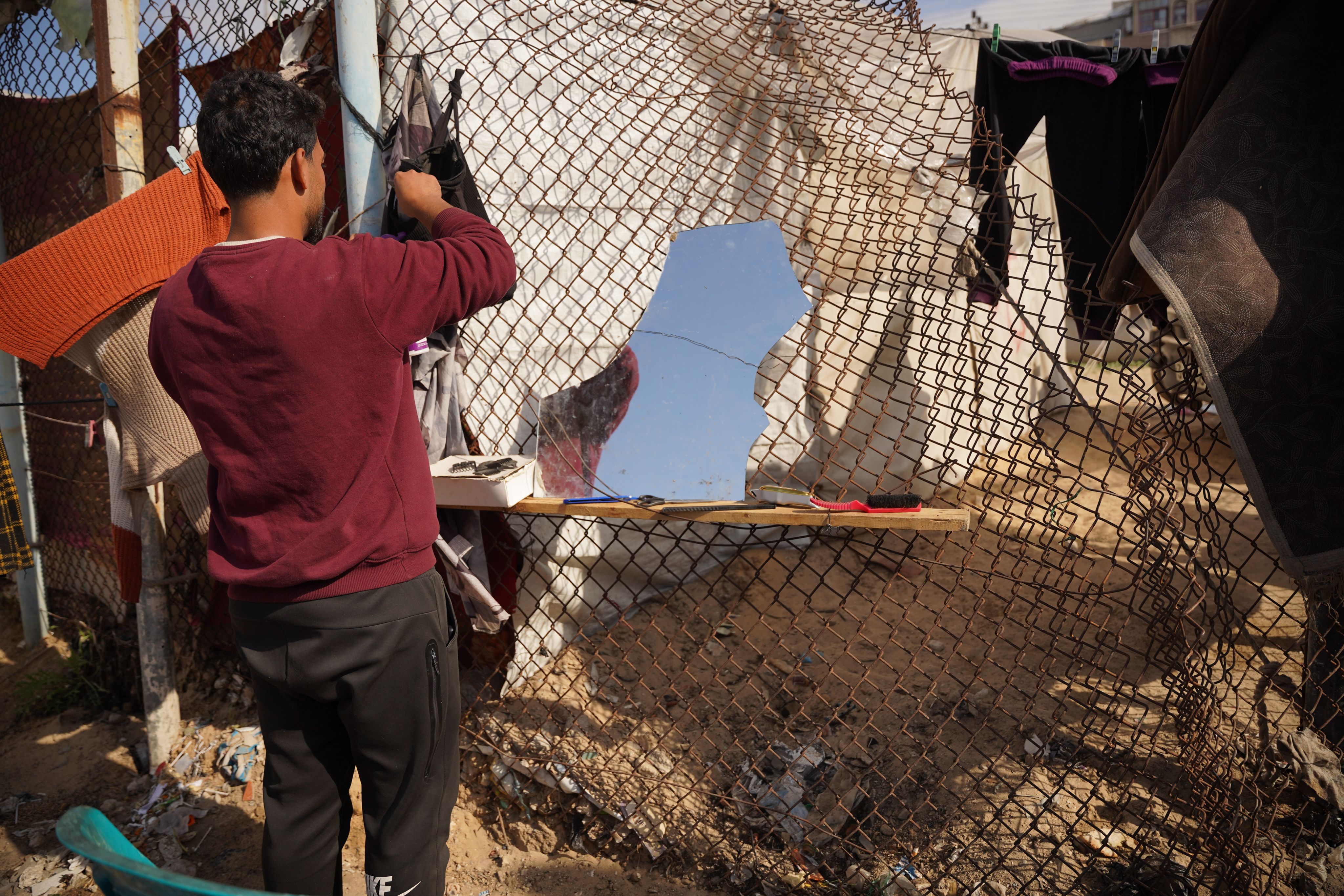
In the southern Gaza Strip, not far from their homes and memories, displaced individuals are living a life starkly different from their pre-October 7th existence, inside temporary tents imposed by the war on Gaza.
Around 775 families gather in the Municipal Stadium Camp, located in the Japan neighborhood west of Rafah, one among several camps established to provide shelter for the displaced.
In most of the tents we visited, the number of individuals often exceeds nine, sometimes reaching up to twenty, such as in the tent of 22-year-old Norhan Yassin, who now resides with her two children and her husband's family.
Norhan has spent a month in this camp, arriving there miraculously after surviving shelling while in the Maa'masani area. From there, she fled towards Rafah, sharing her experience with us, saying: "I saw death with my own eyes."
However, what Norhan's family faces today in this tent is no less challenging than what they've endured before. As night casts its shadows, the journey of sleeping on cold ground begins, with only thin summer blankets separating them from it. The family has given up two mattresses provided to them in favor of Norhan's in-laws, as sleeping on the ground proves difficult for the elderly, Norhan explains.
While the rest of the family spends their cold nights on the ground, Norhan expresses her concern, "My daughter and son are sick and haven't recovered from this cold weather."
The cold and lack of water have prevented Norhan's children from bathing for an extended period, as she explains: "The bathrooms are too far from our tent, so I make do with wiping them down with a piece of cloth."
In an attempt to secure her children's needs, Norhan sought help, but the only response she received was, "We cannot provide anything for them," especially considering that securing milk for her children is a daily concern that haunts her, a worry shared by thousands of mothers living in similar conditions. All of this comes amid warnings from UNICEF of the continuous deterioration in the nutritional status of over 135,000 children under the age of two.
"Our funds have run out, and we haven't received any food basket for a while"
Barely a few meters separate one tent from another, with clotheslines stretched between them, carrying the residents' laundry in an attempt to dry them after washing. This clothesline has become an essential part of the displaced people's lives, including the family of Suleiman Mohammed Al-Shamali, where each member owns only one piece of clothing.
The 67-year-old Palestinian left his home in Khan Yunis with his family after it was bombed, walking five kilometers on foot until they ended up here in this camp.
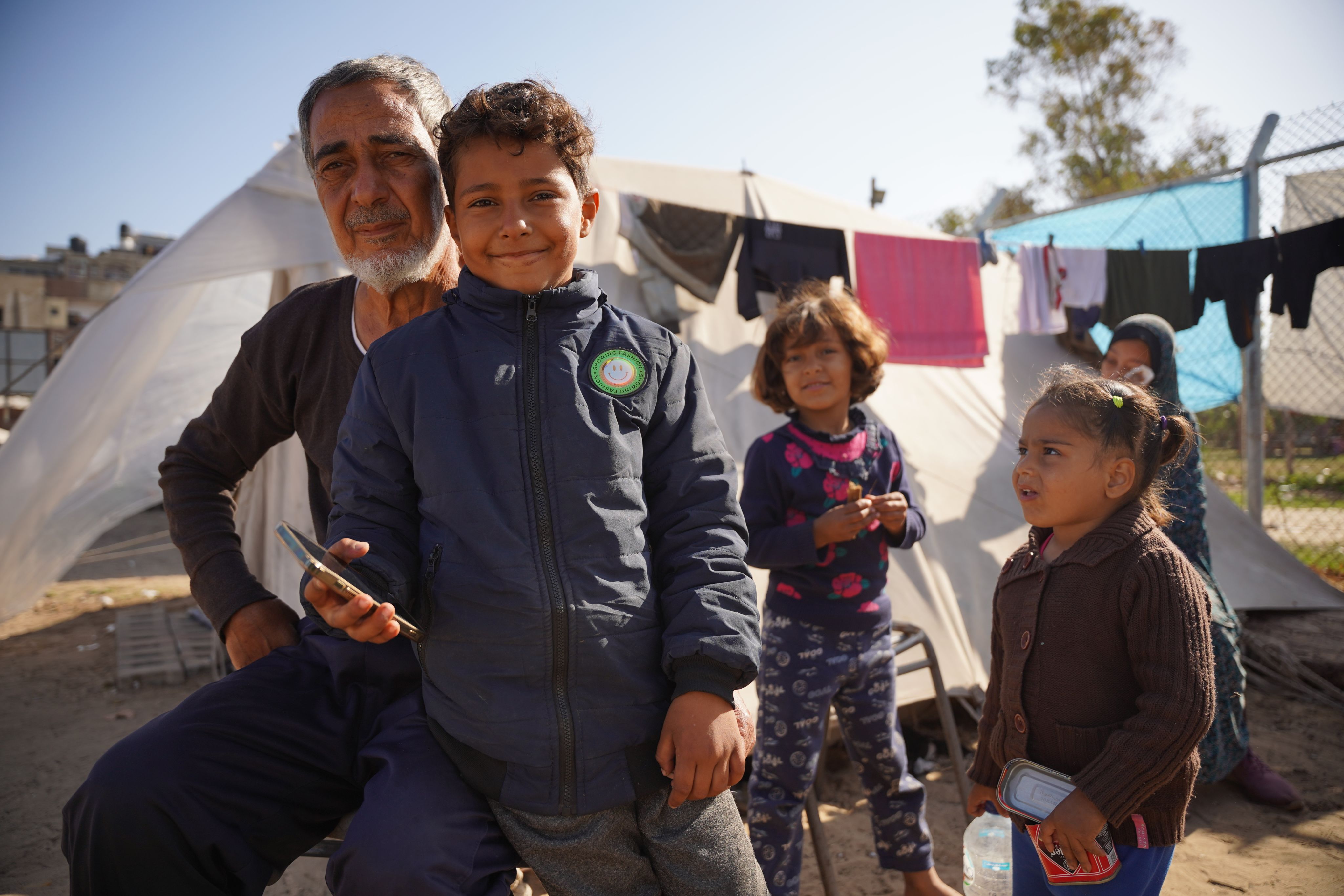
Currently, 11 people live inside Suleiman's tent, which consists of three families sharing one shelter. This tent has not received any assistance for 18 days, as we were informed.
Suleiman says, "This tent is the biggest disaster and tragedy that has ever happened in our lives. We never expected to end up here, displaced within our own country." It has been a month since Suleiman arrived here, facing significant challenges as prices for everything skyrocketed and life essentials became less accessible.
The main challenges Suleiman faces include securing water and heating resources during the winter. His family relies on just one blanket to warm up 11 people inside the tent. He adds, "The bathrooms are unsanitary, and the food baskets are completely insufficient to meet their needs."
"What concerns Suleiman the most is the situation of the children in this place. They face a harsh reality, playing in the dirt and sand, their mental state unstable. You find them suddenly crying or screaming," says Suleiman. "There is an urgent need to monitor their mental well-being. I wish there was an organization that cares about their conditions and provides them with the necessary psychological support in these difficult times."
Ibrahim, one of Suleiman's 7-year-old children, vividly portrays the harsh reality that children face here. Ibrahim dreams of returning to his home where his room was filled with toys, but today he resides in a tent lacking basic necessities.
While the residents here are longing to return to their homes, or rather to the rubble of their homes, they have to search for solutions for their daily lives. Here, for example, there is a temporary barbershop where the owner settled for hanging remnants of a broken mirror dangling from the tent's window, next to it a pair of scissors and a brush.

Almost every tent is equipped with a simple oven crafted by the displaced from clay, ignited by branches and wood gathered from nearby forests. However, even the use of these woods is calculated in a place where there is no source of electricity or light.
Adli Numan Dabbou, 50, relies on the light of his mobile phone for illumination at night. But it all hinges on his ability to secure a charger for the phone during his day, for if he fails, his family loses the chance to light their tent at night.
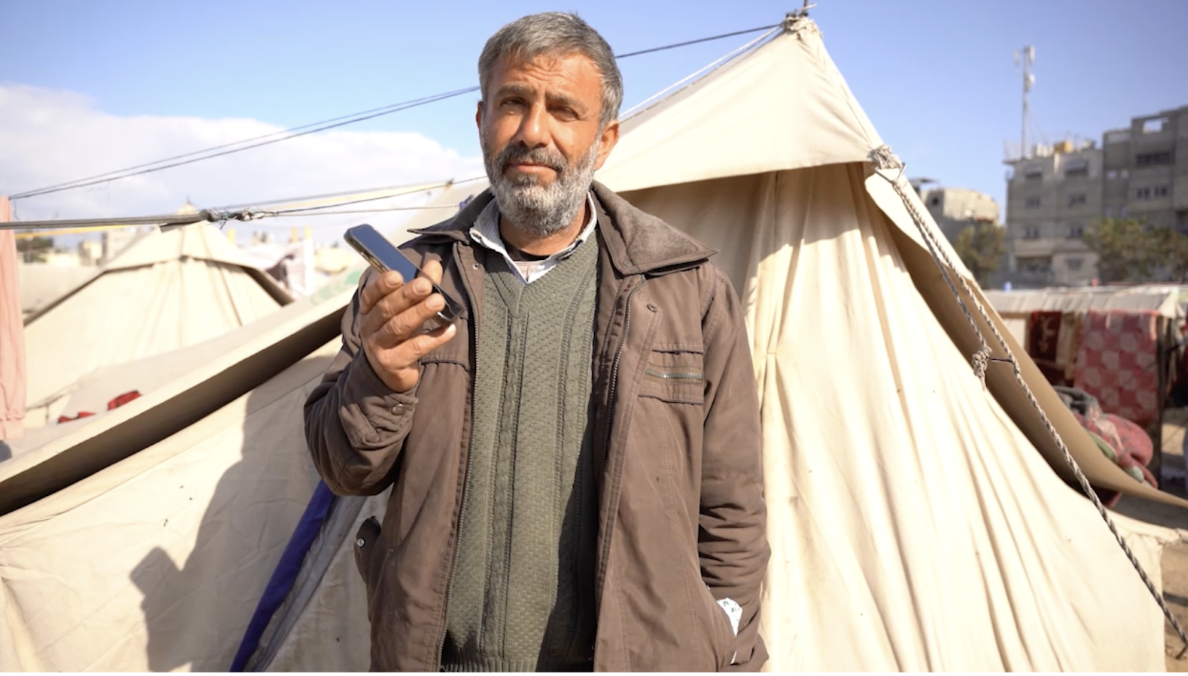
Abdali, who left his home abruptly in the last moments, as his building was targeted by a shell, forcing him to leave to safeguard his children's lives. His journey ended with reaching a camp where he faces daily challenges in securing clean water.
These conditions have led to a significant spread of diseases among the displaced, especially among children. According to UNICEF statistics, cases of diarrhea among children under five rose from 48,000 to 71,000 in just one week starting December 17th, equating to 3,200 new cases of diarrhea daily. UNICEF pointed out that this significant increase in a short period is a strong indicator of the rapid deterioration of children's health in Gaza.
Israeli bombardment has caused the destruction of water, sanitation, and basic health systems in the Gaza Strip, limiting the capacity to treat severe malnutrition. At the same time, the very few hospitals operating focus on responding to the large number of conflict-affected patients to the extent that they are unable to adequately address the spread of diseases.
What worries Abdali every time he looks into his children's eyes is the harsh reality they face. Despite some individual initiatives in the camp to entertain the children, "war, destruction, and bombardment dominate the atmosphere in this place," as Abdali puts it.
This reality was also evident in the case of his son Mustafa, a sixth-grade student, who shared his story with us, suffering from cold and a lack of basic supplies, dreaming of returning home.
Conflict, malnutrition, and diseases threatens over 1.1 million children in Gaza.
At the medical point under the Ministry of Primary Care in the camp, Dr. Mohammed Abu Ghali faces serious health challenges, monitoring an average of 190 cases of respiratory diseases daily. One-third of these cases result from the large overcrowding and ease of infection spread, while the rest are due to gastrointestinal illnesses resulting from food and water contamination.
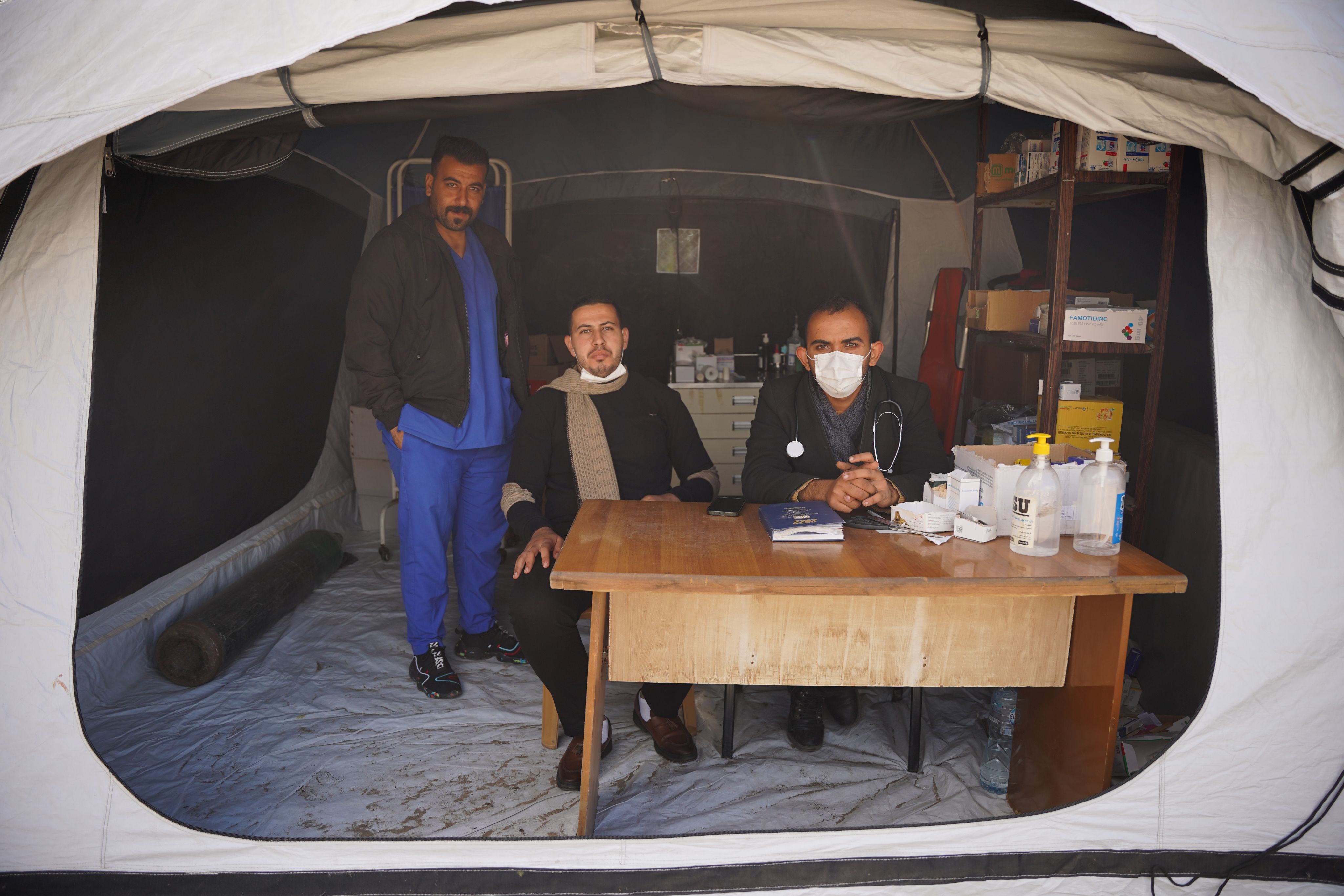
The health conditions in this camp are dire, with some of the displaced individuals suffering from scabies and skin diseases spreading widely, coupled with a shortage of medical supplies that are insufficient to meet these essential needs.
There's a significant shortage of medications, and the challenge lies in providing optimal treatment with the available resources, as Dr. Abu Ghali informed us.
The doctor emphasizes statements from the United Nations Children's Fund (UNICEF) indicating that children in Gaza today face a triple deadly threat consisting of increased disease outbreaks, malnutrition, and escalating conflict.
